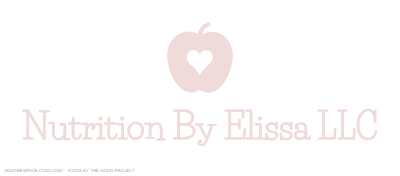The dieting mentality is just as dangerous in the context of a PCOS dietary pattern as it is to any other situation. Diet plans convince people that the "eat less, move more" mentality is the key to good health when there are little to no long-term studies that show that these behaviors are effective, much less sustainable.
In fact, dieting can cultivate behaviors that do more harm than good. Dieting emphasizes prioritizing the number on a scale, which is a false proxy for health status. It persuades people that one body type or one weight value is synonymous with vitality and wellness. Believing these false narratives can damage one's mental health and self-worth. The pitfalls of dieting can also be dangerously mirrored on the opposite side of the spectrum, where it's just as dangerous to obsess over healthful foods and "clean" eating. This preoccupation with food type and quality can pose serious threats to physical and emotional well-being because it drives people to worry over every single thing they eat.
We must get away from both ends of the spectrum. Whether it be through exposure to advertisements, TV shows, and social media, restrictive methods of eating are detrimental. This sentiment applies to PCOS dietary patterns as well. There is no evidence that people with PCOS should eliminate certain foods, as complete elimination of one food will not instantly make symptoms disappear. Instead, people with PCOs can focus on gently integrating foods to manage inflammation and blood sugar, while minimizing others that incite these symptoms.
Luckily, there are a bevy of foods that naturally help. The fiber in whole grains and cruciferous vegetables slow blood sugar spikes. Omega-3s found in fish, avocados, and olive oil can reduce inflammation. And lastly, nutritious breakfast foods, like eggs and whole wheat toast, help to sustain energy throughout the day.
Listen to your body to understand how often that may be. But don't listen to fad diet experts saying removing one type of food will completely change your life and living with PCOS. The benefits of focusing on the sum of the parts will have many more positive benefits for physical and mental health than completely subtracting one food from the dietary pattern equation.
If you desire to learn more about how to eat and live with PCOS, contact a local dietitian near you or book a free discovery call with Elissa below. It’s essential to identify the foods that make you feel like you’re managing your PCOS without restriction or limitation.
